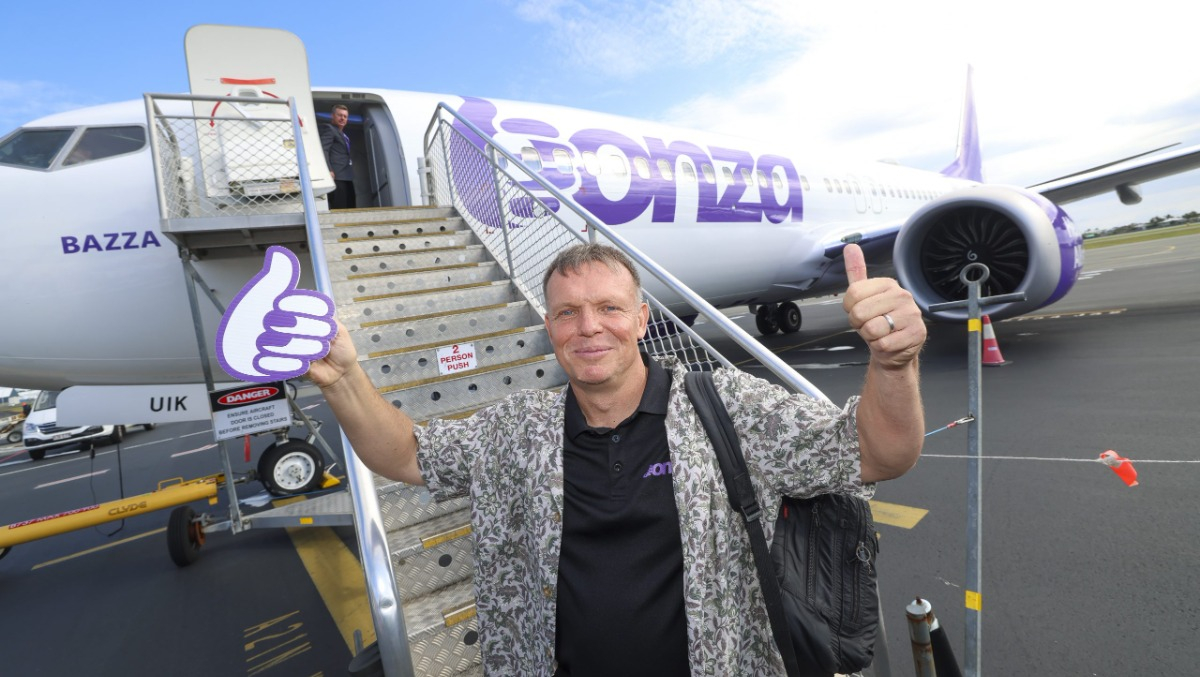
Bonza CEO Tim Jordan has labelled Sydney Airport’s controversial slot system as the “biggest singular issue” facing Australia’s domestic aviation market.
It comes after the ACCC on Monday argued larger airlines “can exploit” the rules to stifle competition from smaller carriers, while Sydney Airport itself agreed the nationwide system doesn’t work.
Currently, an airline can hold a timeslot at an airport indefinitely as long as it flies it 80 per cent of the time, allowing carriers to cancel up to a fifth of flights and maintain a monopoly.
It’s led to accusations from critics that airlines take slots they don’t actually need as there is a huge buffer to cancel so many of them, forever blocking out rivals.
Speaking to the Australian Aviation Podcast, Jordan said you “have to question why” the cancellation rate at Sydney is three or four times higher than in the rest of the country, and that the system is an impediment to competitive growth in the domestic market.
“We’ve just gone through, in mid to late 2022, the worst on-time performance in the history of Australian aviation,” Jordan said.
“Based on the existing rules, no carrier has been forced to my knowledge, to have given up any slots at Sydney, which probably tells you the current system doesn’t work as envisaged.”
The Bonza CEO called on the industry to find a better way to manage what he calls a “limited and scarce resource” and a “vital piece of national infrastructure”.
“I can’t help but think there must be a better way, which would allow airlines like Bonza to do exactly what we have done in Melbourne, which is to open up brand new routes to brand new destinations, which is positive to not only New South Wales, but to Sydney, and very importantly to the destinations at the other end of the routes,” said Jordan.
“If we think that the current system is not optimised, surely the onus is on us as an industry to try and drive and make that better.”
Bonza so far does not operate from Sydney Airport, owing in no small part to the very limited number of slots, which the ACCC warned this week were open to hoarding by larger airlines – a stance backed by the airport itself.
“Rules allowing airlines to retain slots in perpetuity exacerbates capacity constraints by limiting the opportunities for new or expanding airlines to acquire slots needed to launch new services and compete,” the competition watchdog said.
“Airlines can exploit the scheme by acquiring and hoarding slots for strategic reasons, such as to prevent competitors’ access to slots, resulting in inefficient slot use and further diminishing opportunities for increased competition. The impact of these flaws in the demand management scheme is more than theoretical.”
Airport slot rules were hugely relaxed during COVID-19 as lockdowns and border closures caused hundreds of cancellations, but have been criticised by both Rex and Bonza as stifling their ability to run services at the most popular times.
Sydney Airport, which has no say over the rules, backed the ACCC’s position.
“We endorse the ACCC’s common-sense position that the slot management scheme should foster efficiency and robust competition,” said the airport in a statement to Australian Aviation.
“Making it easier for new domestic and international airlines to access slots will lead to more choice for travellers. The problem is that the current rules don’t work.
“A rule that says it’s OK for airlines to cancel up to 20 per cent of flights makes no sense and incentivises airlines to over-file for slots, leads to more cancellations, and clearly isn’t in the best interests of the travelling public.”
The rules were created by now-Rex deputy chairman John Sharp when he was in government. However, he has repeatedly spoken of his great regret in introducing them.
“We shouldn’t have been so generous with the 80–20 split,” he told Australian Aviation last year.
“It should have been 90–10. Or we should have put an audit process in place to make sure airlines were only cancelling flights within a slot for legitimate reasons or reasons related to something beyond their control. So that’s a mistake we made at that time.”
Hear more from Tim on this week’s upcoming episode of the Australian Aviation podcast.















